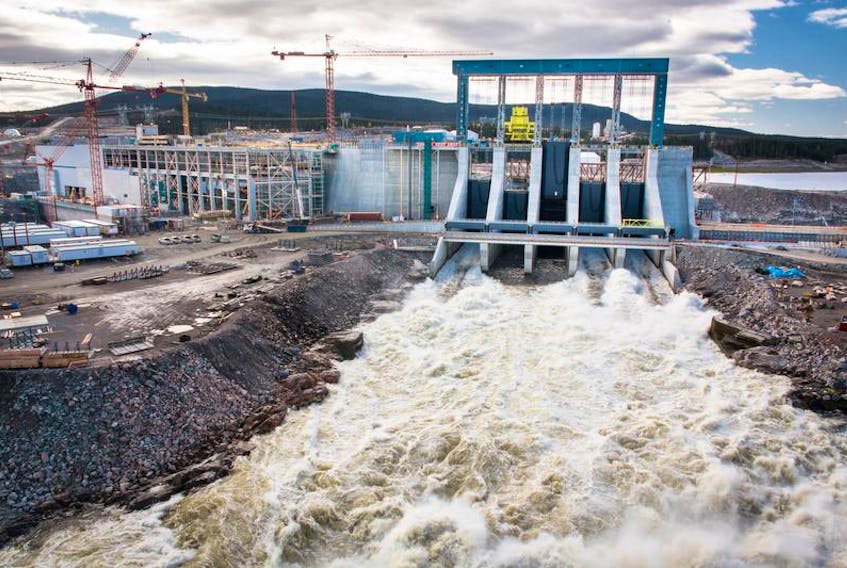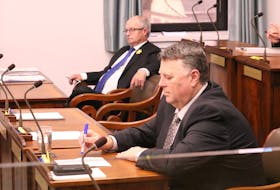If there’s one thing the Muskrat Falls inquiry is pretty darned good at showing us, it’s that governments and government agencies that tout transparency and accountability have developed a curious view about what that actually means.
And it all centres around the fact that information really is power.
One thing that surfaces regularly at the inquiry is the fact that officials, both with the government and with Nalcor, were keenly aware of public concerns about the project, and just as keenly aware of the need to keep information that might inflame the public in any way from being disclosed.

Here’s a snippet from a memo from senior political staffer Tim Murphy to Premier Dwight Ball: “On Tuesday, Ed Martin and Ken Marshall will appear before you and your colleagues on the Planning and Priorities Committee of Cabinet. They will present a set of slides to you that they were reluctant to commit to paper.”
It’s a common theme.
Here’s another small piece from an email by Siobhan Coady, about the government’s request for a copy of former Nalcor Energy boss Ed Martin’s employment contract: “Ken Marshall, Chair of Nalcor, has sent another updated document that he wants printed and the electronic copy destroyed. I will send you a printed copy. Please delete original e-mail. Thanks.”
There’s this from project manager Paul Harrington, about the need to send a Nalcor official to Houston: “Jason wants this travel because we do not want Westney to issue any report that we do not have confidence in. Also he is carrying a message from me to Richard Westney that is best delivered face to face.”
The inquiry has already heard that Nalcor officials had questions about an SNC-Lavalin report outlining projects risks that could affect the Muskrat Falls project, and refused to accept the document, in part because accepting it would mean that the public might be able to learn of its contents through the media’s use of Access to Information legislation. Refusing to accept it — even though Nalcor officials absolutely knew the contents — meant deniability.
Other references have been made to slide decks being kept close to the chest — issued only for specific attendees at meetings, after which the printed copies of the decks were to be collected and destroyed.
And the irony in it all?
Most of the documentation that was being kept off the books was released publicly anyway, even before the inquiry began disclosing rafts of internal government and Nalcor Energy documents online. Ed Martin’s employment contract certainly was publicly released, as was the SNC-Lavalin risk report.
The risk report turned into a big deal, because many of the risks it outlined ended up being accurate, and always because of the clandestine way it was treated, being deliberately kept “off-book,” as it were.
If there’s one thing the Muskrat Falls inquiry is pretty darned good at showing us, it’s that governments and government agencies that tout transparency and accountability have developed a curious view about what that actually means.
The publicity storm was something that could have been avoided if Nalcor had simply accepted the report, and gotten ahead of any public release of the document with the argument that they’re now making that the report wasn’t actually a fair analysis.
Their argument now is that the SNC risk report was a sort of Trojan Horse put together by the engineering firm to try and get back parts of the Muskrat Falls contract that it had lost.
Keeping the report out of sight only served to make the public spotlight brighter when the report actually came out.
Promises of transparency and accountability aren’t supposed to mean that people who work for governments and government agencies have to do new and ever-more-impressive backflips to keep things out of sight.
It’s counterproductive, and a waste of time and money.
Russell Wangersky’s column appears in 36 SaltWire newspapers and websites in Atlantic Canada. He can be reached at [email protected] — Twitter: @wangersky.
RELATED









